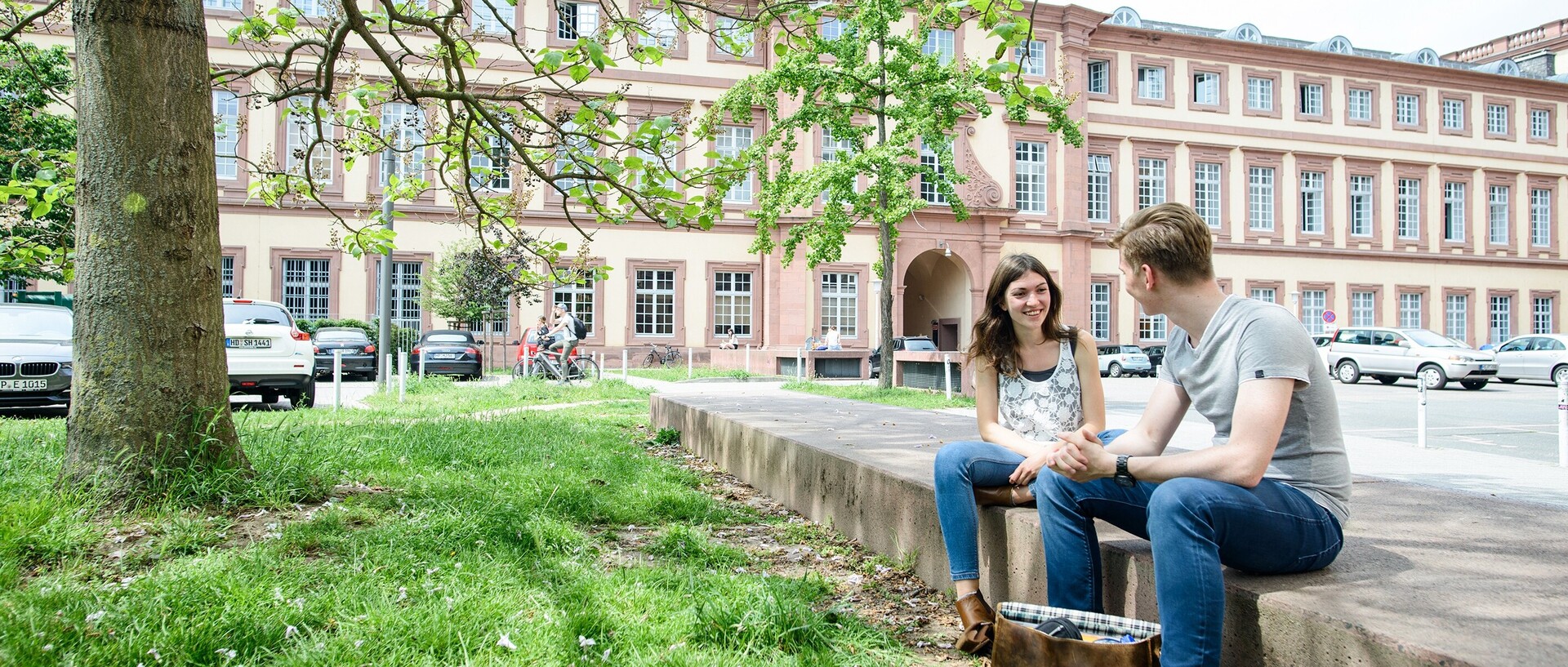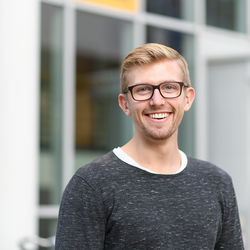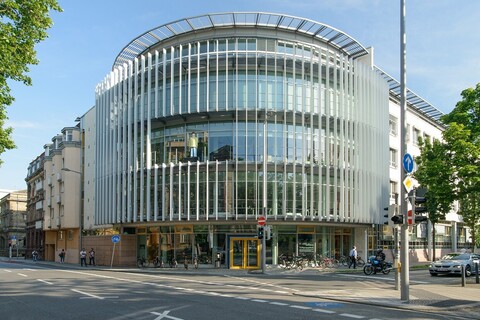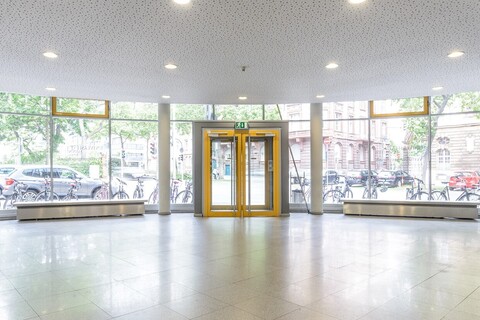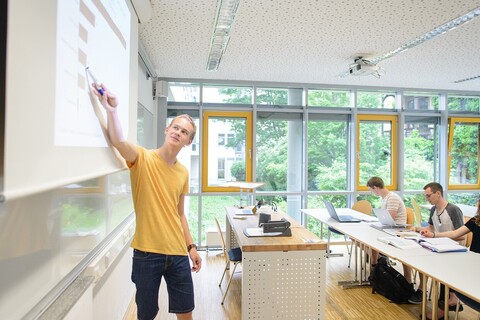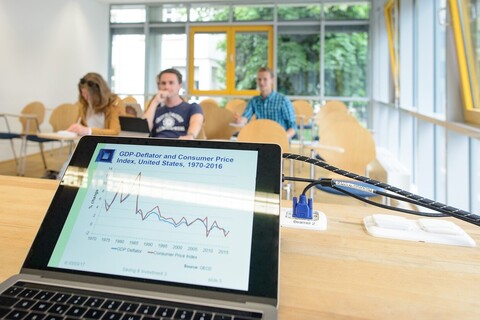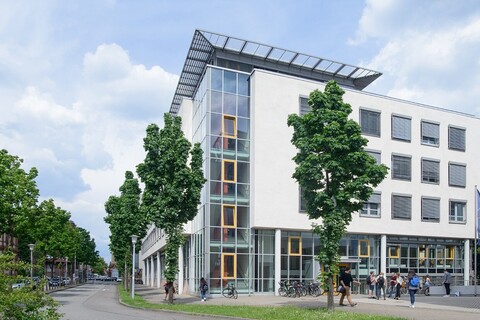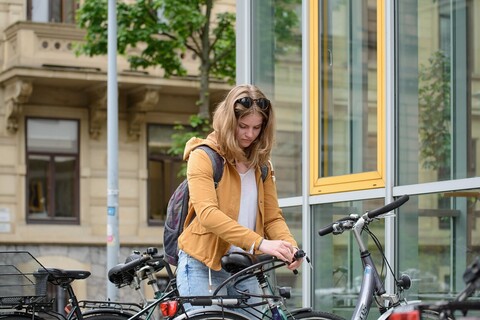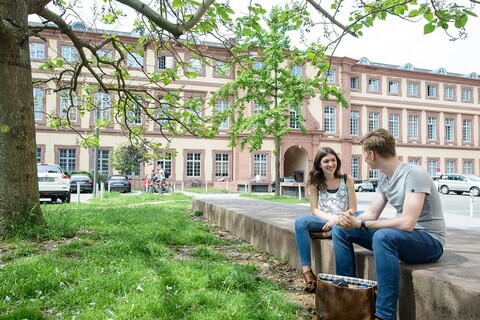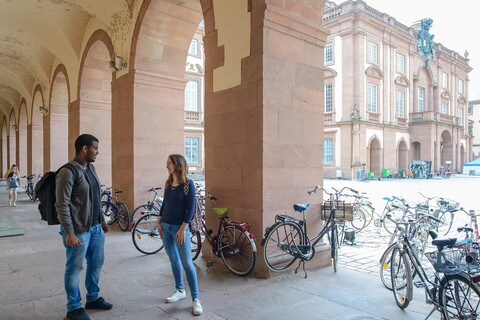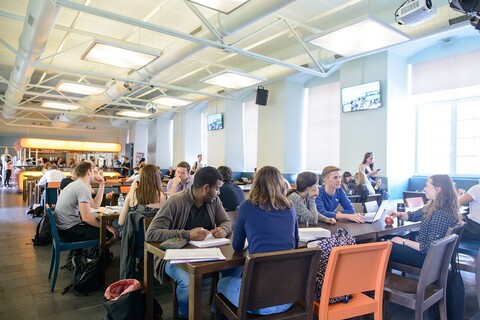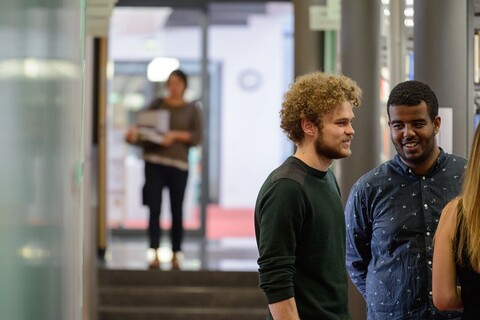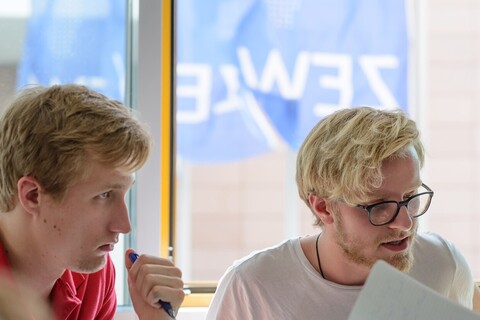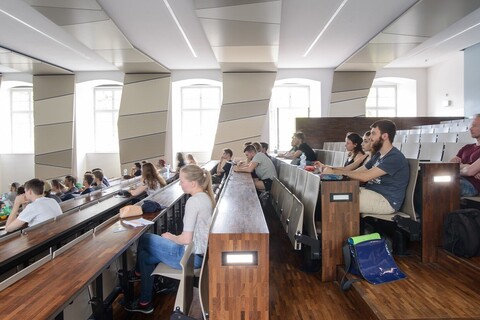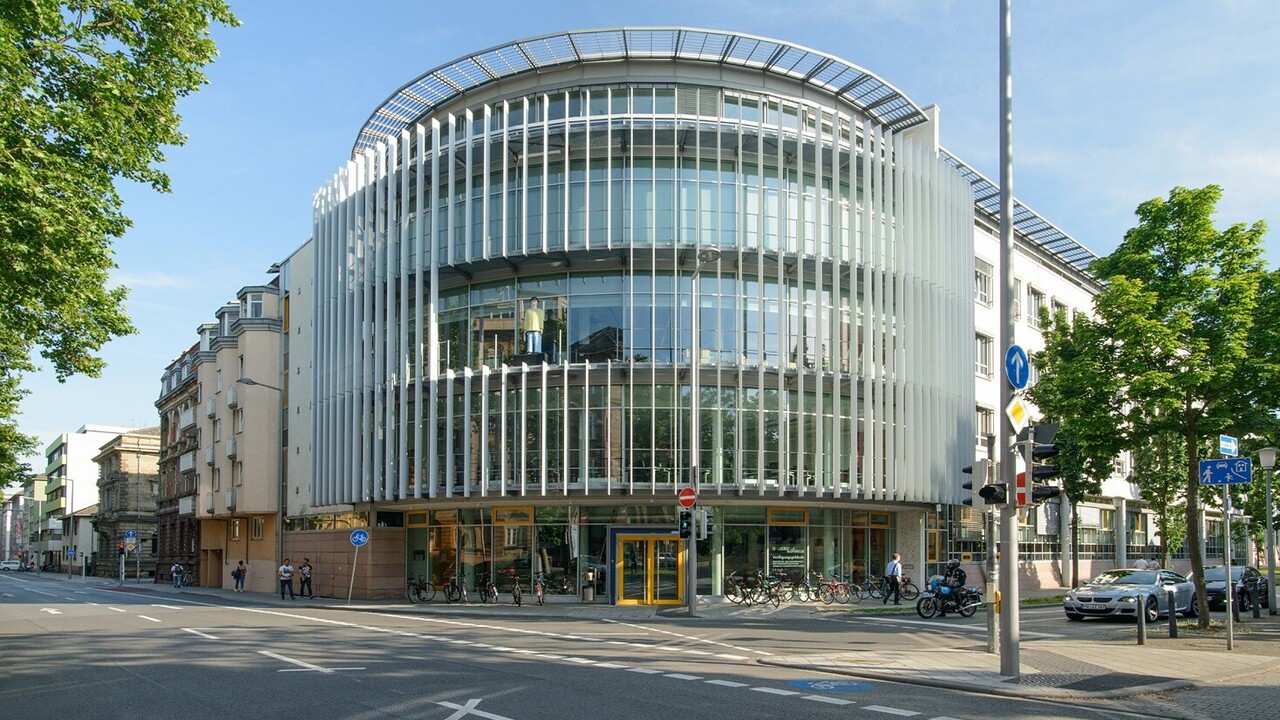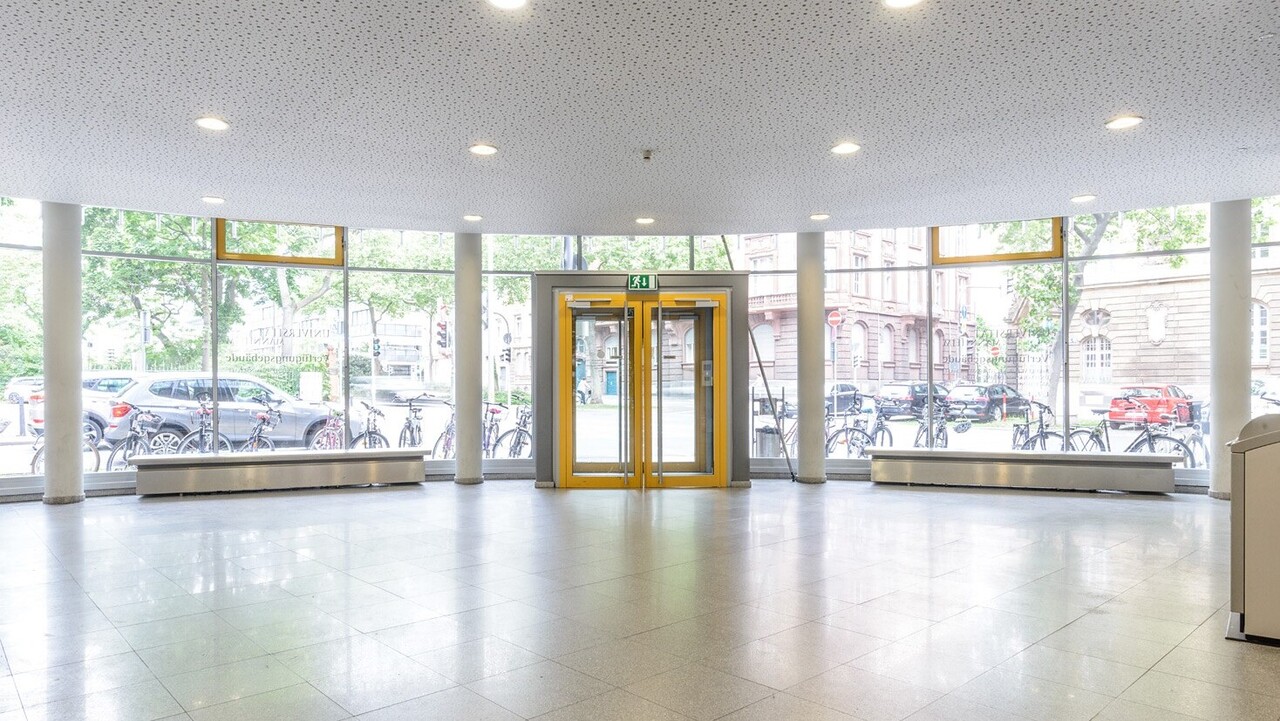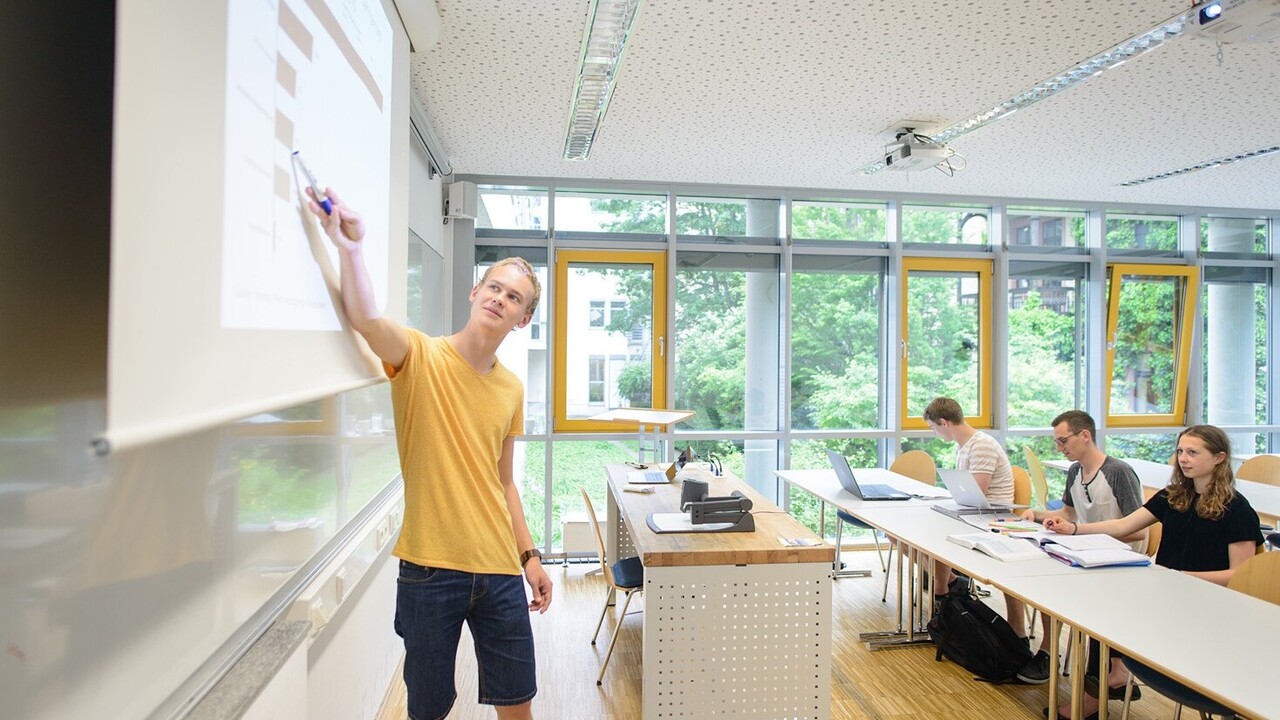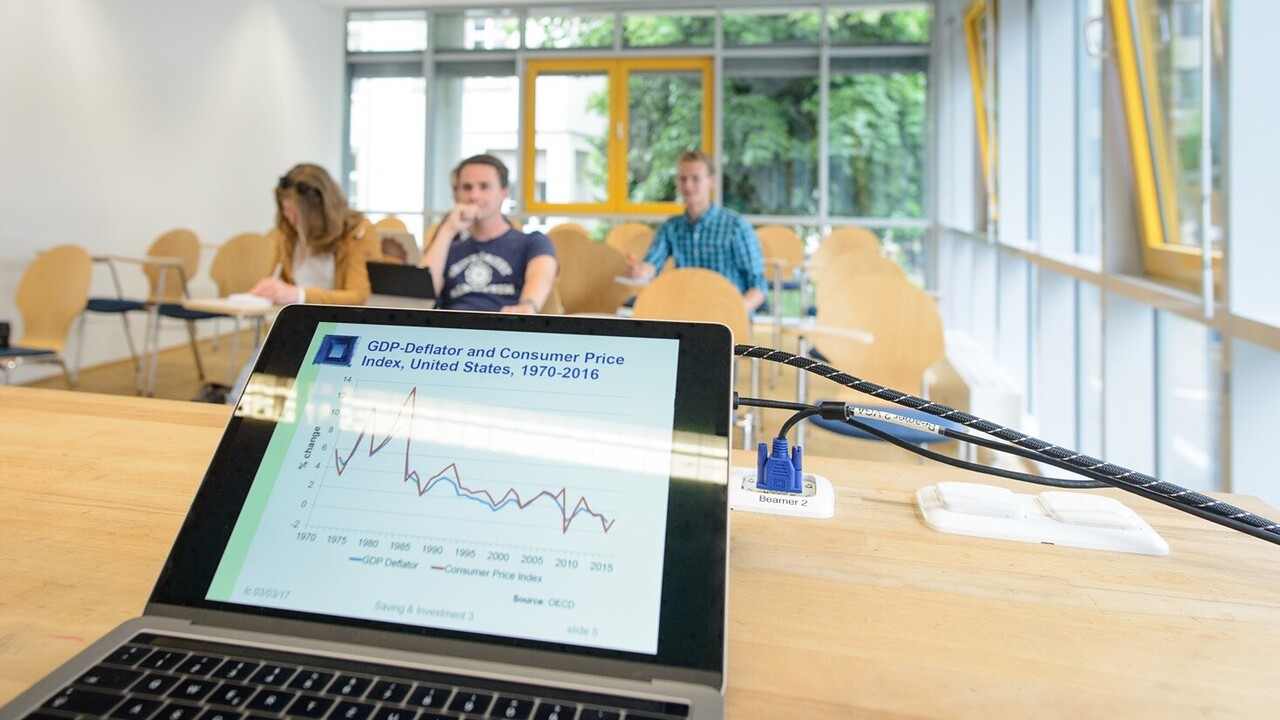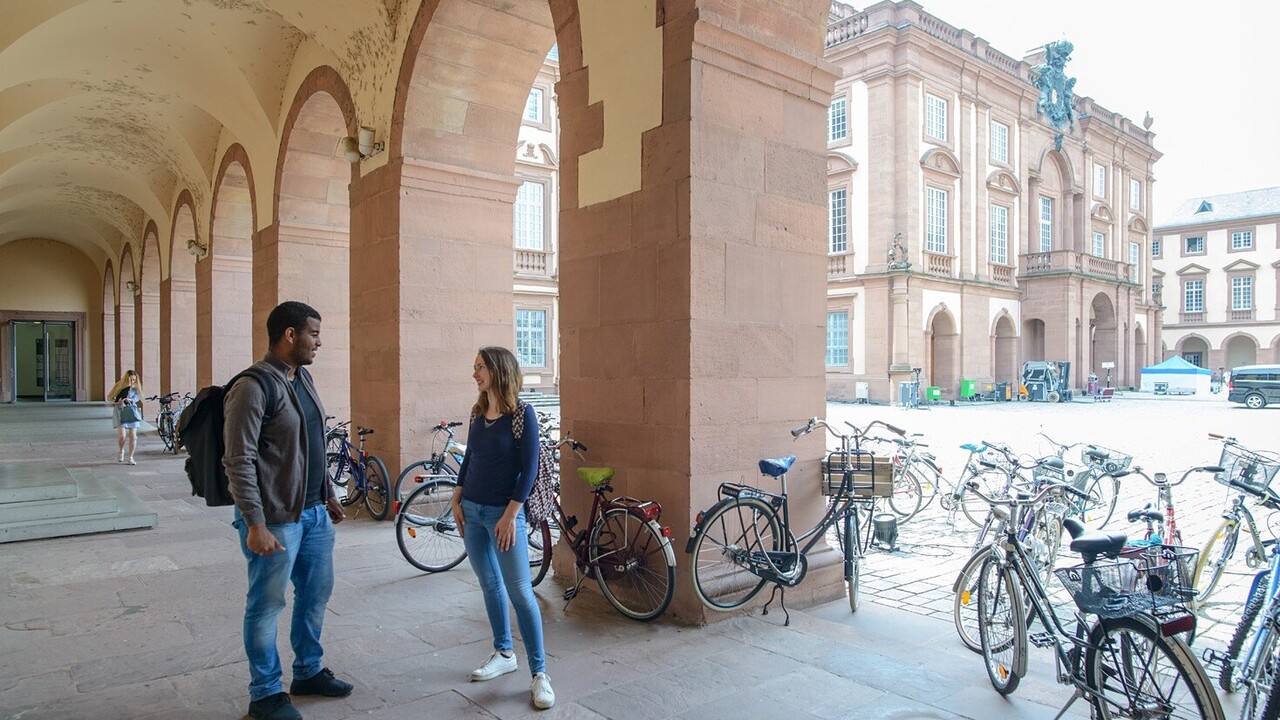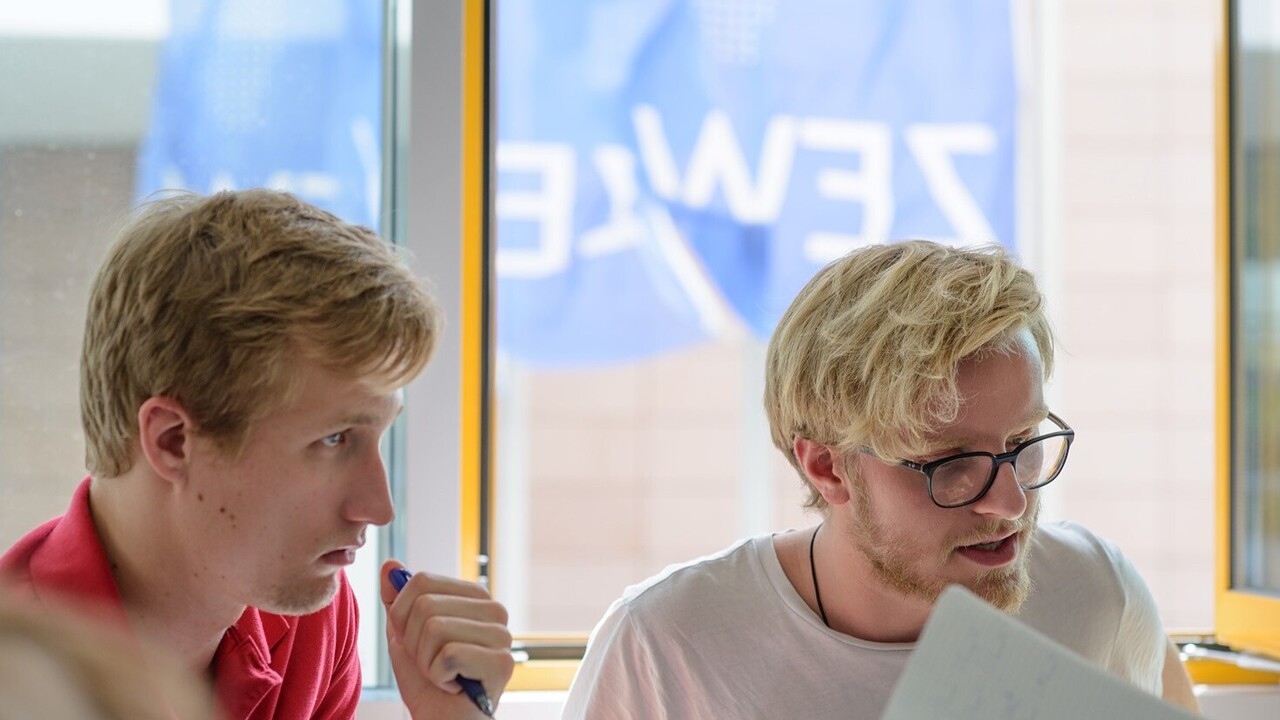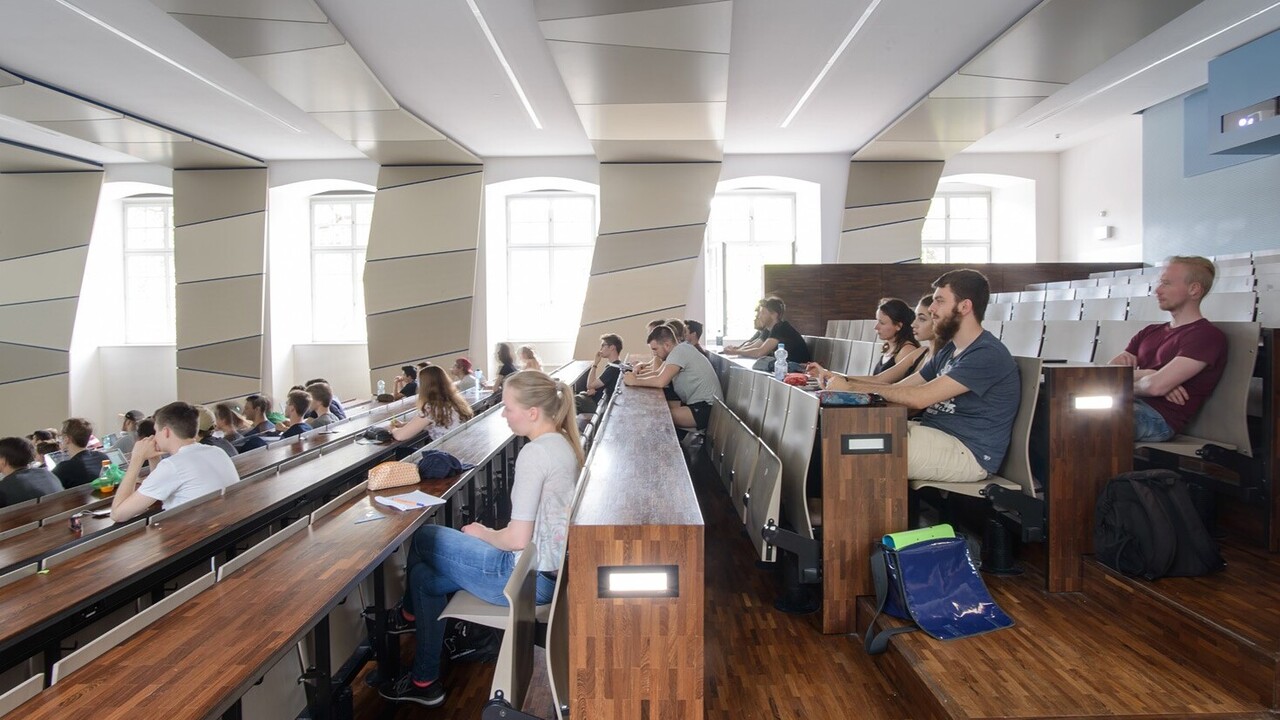Why Study Economics in Mannheim?
Personalized. International. Top-ranked.
At Mannheim, you’ll study economics at one of Europe’s top departments. Our programs are flexible, research-driven, and internationally connected—giving you the freedom to shape your academic path and the support to reach your full potential. From bachelor’s to PhD level, we offer a continuous study experience built on three core values: academic excellence, global outlook, and individual development. Independent rankings regularly confirm our standing. The Department of Economics has been ranked #1 in Germany for the third year in a row in the QS World University Ranking by Subject (2021), and once again took the top spot among all public universities in the 2023 CHE University Ranking.
Your Program: Broad, Flexible, Future-Oriented

The Bachelor’s program in Economics at Mannheim offers more than just a solid foundation in economic theory. With its wide range of modules, it allows you to tailor your studies to your interests and goals. In the first two years, you’ll focus on core economic concepts and gain additional insights into areas such as German public and private law or Business Administration. In the third year, you can choose from a broad selection of electives—including courses from other Schools—and build a profile that suits your ambitions. If you want to continue exploring the field in greater depth, our Master’s and PhD programs offer a seamless path toward advanced academic qualifications.
Theory Meets Practice—Right from the Start
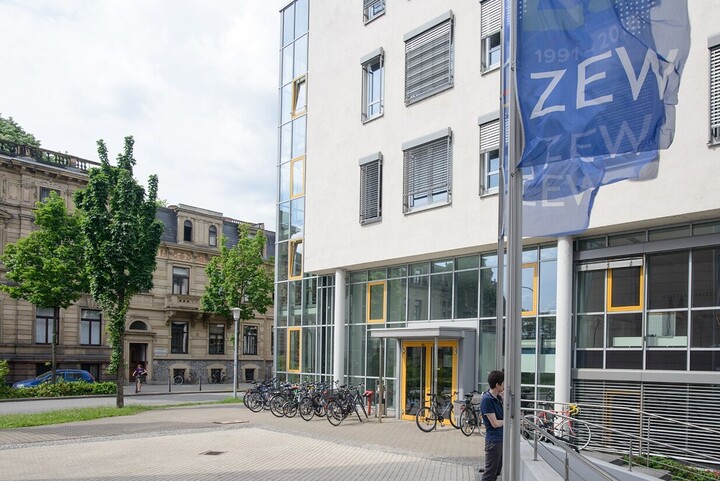
As Immanuel Kant once said: “There is nothing more practical than a good theory.” We couldn’t agree more. That’s why our program combines strong theoretical foundations with practical relevance from the very beginning. You’ll be introduced to empirical economics early on, and many professors bring real-world experience to the classroom through their work as consultants and policy advisors. From the third year onward, electives often include case-based learning and applied questions. Students with excellent academic records can gain hands-on experience as research assistants at one of the department’s chairs, at collaborative research centers, or at the nearby ZEW – Leibniz Centre for European Economic Research. Some also lead tutorials and gain valuable teaching experience—an ideal preparation for both academic and professional careers.
An Academic Calendar Aligned with International Schedules

The academic year at the University of Mannheim starts in the fall semester. Since 2007, our calendar has been aligned with that of many international partner institutions—making it easier for students to go abroad or transition into graduate programs worldwide. The fall semester begins in August, with lectures starting in September and exams typically completed before Christmas. The semester officially ends on January 31. The spring semester runs from February to July, with lectures ending in early June.
This calendar offers several advantages:
- It makes studying abroad easier to integrate.
- It allows for a smooth transition into master’s programs in Germany or abroad.
- It gives students a timing advantage when applying for internships compared to other German universities
Strong Foundations—Excellent Career Prospects

Economics graduates from Mannheim are well equipped for a wide range of careers. The program ensures that you:
- understand key concepts and contexts in economics,
- gain a general overview of the discipline,
- engage with current developments in research and practice, and
- are prepared to enter the job market or pursue graduate studies.
Our graduates are trained to think analytically, develop solutions independently, and make informed decisions using academic methods—skills that are highly sought after across sectors. Career opportunities extend far beyond traditional roles in economic analysis or policy consulting. You’ll be prepared for jobs in business, finance, government, research, and international organizations.
A Program Our Graduates Recommend

Our graduates regularly give us valuable feedback—through a questionnaire included with their degree certificates. The result speaks for itself: On average, 95% of graduates from the 2015–2018 cohorts (graduating 2018 and later) who completed the survey said they would recommend studying Economics at Mannheim to a friend or relative. A clear sign of lasting satisfaction and academic quality.
Download: Why Study Economics in Mannheim? (PDF, 59 kB) (in German) (graduating 2018 and later)
Studying at One of Germany’s Most Beautiful Campuses

Ever dreamed of studying in a palace? At Mannheim, you can. The university is located in one of Europe’s largest baroque palaces—built in the 18th century for Elector Carl Philipp and home today to lecture halls, offices, and seminar rooms. The University of Mannheim traces its roots back to 1907 and has long been recognized as one of Germany’s top institutions for economic and social sciences. It is known for its academic excellence, strong research, and a vibrant student community. Beyond academics, the university offers a variety of extracurricular activities to enrich student life on campus.
Life in Mannheim—Affordable, Lively, Well Connected

Mannheim, together with nearby Ludwigshafen and Heidelberg, forms the heart of the Rhine-Neckar metropolitan region—an economic and cultural hub with over 2.5 million people. The city itself has more than 300,000 inhabitants and lies at the intersection of the Rhine and Neckar rivers. High-speed trains connect you to Frankfurt and Stuttgart in just 30 minutes.
Mannheim is known for its youthful, creative energy. The city offers theaters, museums, live music venues, cafés, bars, and green spaces—all within easy reach. Whether you're into art, nature, or nightlife, you’ll feel right at home.
Finding a Place to Live

Compared to many other university cities, Mannheim offers relatively affordable housing—especially in popular neighborhoods like Lindenhof, Schwetzinger Vorstadt, Neckarstadt, and Jungbusch. The Studierendenwerk provides guidance and manages a number of modern student residences across the city. Whether you prefer a private apartment or shared flat, you'll find suitable housing options for every budget.
